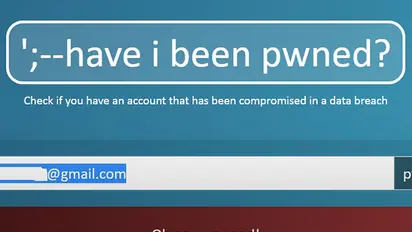This website lets you check if your password has been leaked

Synopsis
You can check if your email address has been compromised or password leaked. A security expert has rolled out a new service that tells you if your account has been compromised. He has also released 306 million previously hacked passwords.
As our lives go digital, data breaches and hacks have become a part of our lives. In many past incidents, we've seen hackers compromise security and leak information online.
Now, a security expert has rolled out a new service that tells you if your account has been compromised. Troy Hunt's 'Have I been pwned' website tells you if an email address has been a part of the data breach or their passwords are among the ones breached.
You can check if your email address has been a part of data breaches off late by visiting https://haveibeenpwned.com/. For instance, take a look at the screenshot below:
He has also released 306 million previously hacked passwords. "The entire collection of 306 million hashed passwords can be directly downloaded from the Pwned Passwords page. It's a single 7-Zip file that's 5.3GB which you can then download and extract into whatever data structure you want to work with (it's 11.9GB once expanded)," Hunt wrote in a blogpost.
In the Pwned passwords section, you can enter some of your old passwords to know if they were ever involved in a breach. In case, they have been appearing, then it’s time to realise that you need a stronger password. Check this out:
However, do not test passwords that you are currently using. Also, we wouldn't recommend using such similar sites to check passwords
"It goes without saying (although I say it anyway on that page), but don't enter a password you currently use into any third-party service like this! I don't explicitly log them and I'm a trustworthy guy but yeah, don't. The point of the web-based service is so that people who have been guilty of using sloppy passwords have a means of independent verification," Hunt explains.
Find the latest Technology News covering Smartphone Updates, AI (Artificial Intelligence) breakthroughs, and innovations in space exploration. Stay updated on gadgets, apps, and digital trends with expert reviews, product comparisons, and tech insights. Download the Asianet News Official App from the Android Play Store and iPhone App Store for everything shaping the future of technology.